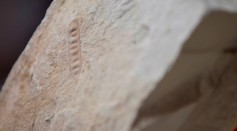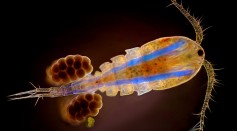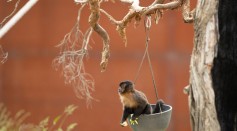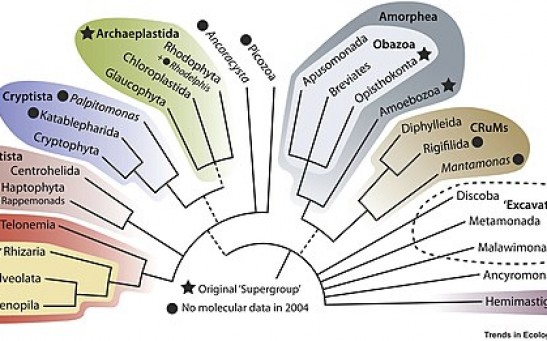evolutionary biology

Ancient Winged Plant Fossil May Solve ‘Paleobotanic Mystery,' How Plants Were Dispersed 100 Million Years Ago

Earth's Routine Orbital Stretches Significantly Impacts Evolution; Study Says

Great Oxygenation and Plankton Eradication Paved the Way For Mountains and Life on Earth
Ancient Plant Fossils Help Explain the Rise of Flowering Plants
1-Billion-Year-Old Fossil Life Discovered: Scientists Say It Has Never Been Described Before
Neural Network From Brain to Eyes Evolves Much Earlier, Fish Genetics Study Shows

New Study on Skeletons Reveal How Humans Adapt to Pandemics

New Study Unveils Hereditary Clues to the Capuchin’s Long Life and Large Brains
200-Million-Year-Old Teeth Suggest First Mammals Lived Like Reptiles
Seeing With Its Skin—How An Octopus Can Live In the Deep
Yale Traces the Origins of all Snakes
How the Opah Managed To Hide Its Warm Blood In Ocean Depths
Embryological Manipulation Reveals Chicks Can Have Prehistoric Looks
From Single Cells to Us—The Tale Of Evolution As It's Told At Deep-Sea Vents
Most Popular

Tapeworm in Brain Found To Be Culprit of Man's Severe Migraines; Eating Undercooked Bacon, Not Washing Hands Properly Could Be To Blame For Infection

RSS Tool "Saber" Set to Revolutionize the Oil and Gas Industry

Pink Moon Will Be Visible During Lyrid Meteor Shower; Here's the Best Time to Watch It
![Earth's Quasi-Moon Kamo‘oalewa Could Originate From Lunar Surface Not Asteroid Belt [Study]](https://1721181113.rsc.cdn77.org/data/thumbs/full/53275/89/56/50/40/earths-quasi-moon-kamo-oalewa-could-originate-from-lunar-surface-not-asteroid-belt-study.png)
Earth’s Quasi-Moon Kamo’oalewa Could Originate From Lunar Surface Not Asteroid Belt [Study]






